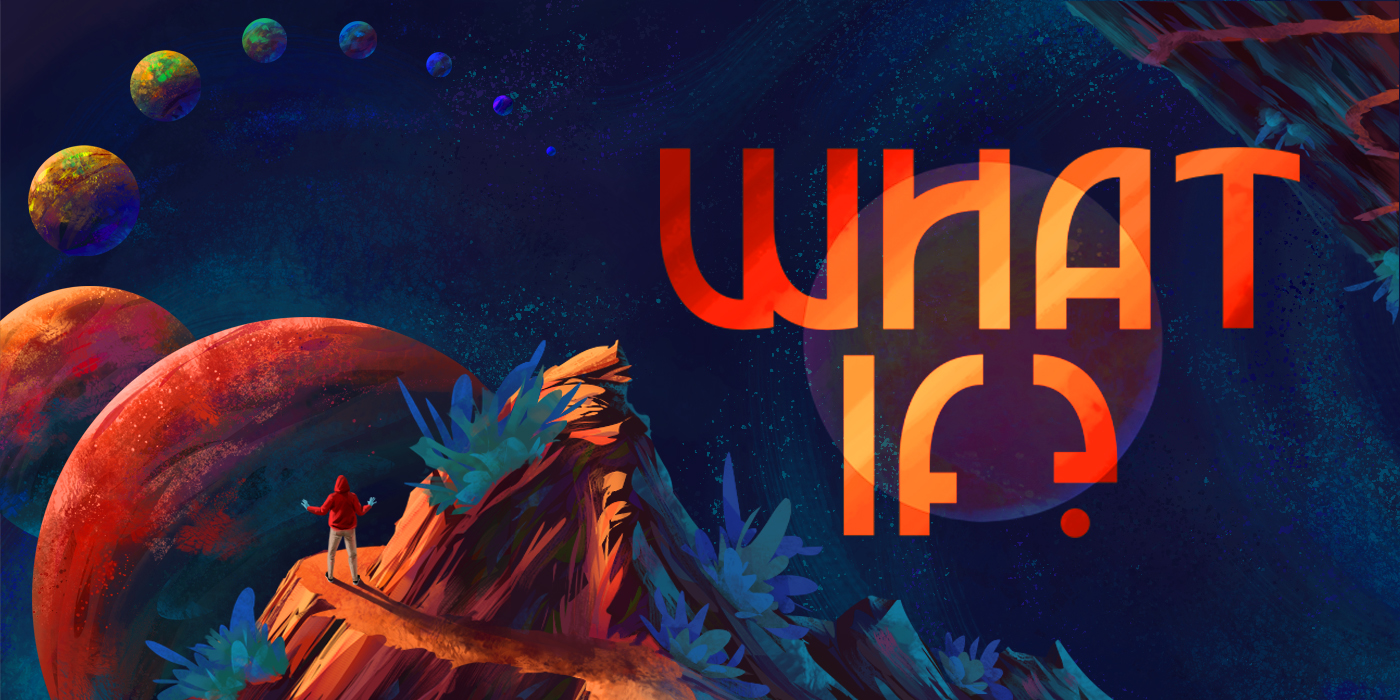
WHAT IF? is a question that has proven itself transformative in the arts, the sciences and virtually every other area of human knowledge and belief. What if there were a particle smaller than an atom? What if we could stand on a beam of light? What if line and colour could be used to depict not only reality but also a feeling? What if we viewed the natural world as imbued with active intelligence? What if our society became focused on happiness for all rather than just for some? What if we could look at the world as if for the first time, with what Buddhist masters call “Beginner’s Mind” or as the philosopher Hegel put it, “without a dictionary”? What if we asked a different question? Told a different story? Tried a different approach? What if, as the economist Milton Friedman wrote, “the politically impossible becomes the politically inevitable”? What new possibilities might reveal themselves then?
Sometimes it takes a crisis, either in our personal lives or on a social or global level, to force us to ask difficult but necessary WHAT IF? questions. Whether through physical and mental symptoms, strife in our relationships, outcry in communities, violence in politics, collapse in economies, the rising of oceans and burning of forests, or failures in hegemonic frameworks, the world may send us the message that however we’re perceiving and thinking about things, we are failing to grasp something essential. Various crises are incubating in the 21st century: the impact of our way of life on our habitat, threats arising from nuclear, bio-genetic or artificially intelligent technologies, the Apartheidization of the world, the commodification of life. In the face of these crises, WHAT IF? thinking and perceiving can help us to step back from unworkable ideas, representations and practices, re-examine our understanding of the world and of ourselves, and change our way of living.
We have a natural ability to think counterfactually, to contemplate alternative possibilities, evidenced in our common use of words such as if, unless, might, could, and should. As the psychologist Alison Gopnik has pointed out, WHAT IF? is a highly active mode of thought among children, whose developmental imperative is to explore, experiment and discover. It is a mode of thought that continues throughout adulthood across the arts and the sciences, which employ the question of WHAT IF? to push the boundaries of our knowledge, to improve our skills, and sometimes to provoke monumental shifts in our paradigms.
In 2022/2023, SPACE invites Dawson students across the disciplines to harness and develop their innate capacity to consider WHAT IF? questions—to hypothesize, to model, to innovate, to challenge, to imagine—and to share their explorations with the Dawson community through SPACE venues such as our website, our ongoing events and our annual showcase. The issues of our times transcend any one academic discipline and require that we ask WHAT IF? together, helping each other us notice the unnoticed, to consider the unconsidered, to express the inexpressible and to make the impossible a reality.
Above: detail of poster design by Alexia Boreham, Illustration student, Dawson College.
If you wish to get involved with SPACE, please contact the SPACE coordinator or one of the fellows:
Amanda Beattie—Fellow, Winter (Fine Arts)
Andrew Katz—Fellow, Fall; Cordinator, Winter (English)
Darren Narine—Fellow, Fall (Mechanical Engineering)
Justine McLellan—Fellow, Fall (Cinema-Communications)
Joel Trudeau—Coordinator, Fall; SPACE Certificate Coordinator, Winter (Physics)